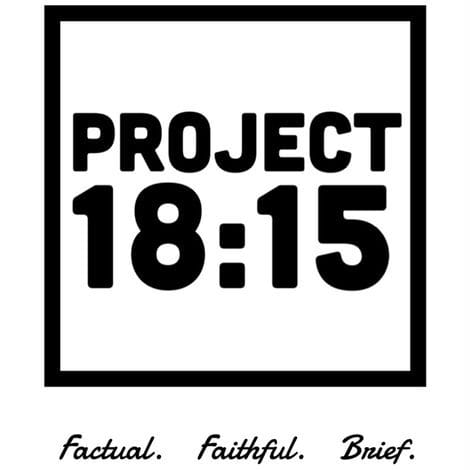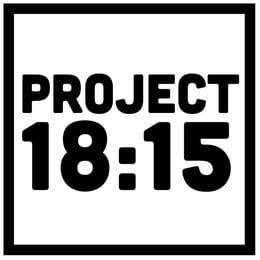
It's Saturday, April 15, 2023.
Today’s edition covers a clash of federal abortion pill rulings, a journalist’s deep-dive into the state of the Southern Baptist Convention regarding the question of female pastors, and much more.
Your feedback is invaluable. Please submit your comments and ideas here.
If this briefing was forwarded to you by a friend, sign up here.
Of Christian Concern
A CLASH OF ABORTION PILL RULINGS
Last Friday, federal judge Matthew Kacsmaryk of Texas suspended the FDA’s approval of the abortion pill mifepristone, on the grounds that the approval ignored the FDA’s own rules regarding sufficient testing. Less than an hour later, another federal judge, Thomas Owen Rice of Washington, issued an opposing ruling to prevent the FDA from removing its approval of the pill in 17 states and Washington, DC.
Biden’s administration and the drugmaker Danco Laboratories filed an appeal of Kacsmaryk’s decision, and the Department of Justice took the appeal to the Supreme Court. Meanwhile, 19 states coalesced and filed an amicus brief in support of the decision.
Yesterday, Supreme Court Justice Alito issued an administrative stay of the decision until 11:59pm E.T. on Wednesday, to give the court more time to consider the case.
JOURNALIST EXPOSES THE STATE OF THE SBC REGARDING THE QUESTION OF FEMALE PASTORS, SBC PRESIDENT RESPONDS
Journalist Megan Basham wrote a long-form piece for American Reformer on the state of the Southern Baptist Convention (SBC) regarding the question of female pastors. The article, published Tuesday, follows the story of Pastor Mike Law of Arlington Baptist Church in Virginia as he seeks denominational clarity and unity on the issue. Basham narrates a series of bureaucratic twists and turns, suggesting that SBC leaders are not always acting on principle, in good faith, and in accordance with their denominational confession.
A key player in the story is Saddleback Church, the popular megachurch in California, which was disfellowshipped from the SBC on February 21 for having hired a female pastor. Basham reveals that Saddleback also has a number of connections to LGBTQ-affirming organizations. Additionally, she presents evidence that SBC leaders disfellowshipped the church as a political maneuver to disincentivize conservative voices from attending the upcoming annual meeting, to force the question of Saddleback's membership during that meeting, and to frame the issue of female pastors as a popularity contest for recently-retired Pastor Rick Warren, rather than as a contest of principle based on Scripture.
To read SBC President Bart Barber's response to the article, and subsequent back-and-forth with Basham, start here.
NEW RULE PROPOSED BY BIDEN ADMINISTRATION WOULD BLOCK STATES FROM BANNING TRANSGENDER ATHLETES
The Biden administration proposed a new rule last week that would prevent states from banning male transgender athletes from competing in women’s sports. The rule would prohibit any federally funded school or college from creating a policy that categorically bans trans students from playing on the sports team of the gender with which they identify. It would, however, allow certain limits, such as eligibility standards.
If passed, the rule would become a provision of Title IX, the 1972 landmark legislation that prohibits sex discrimination in educational institutions. The proposal faces a long approval process, and will likely encounter challenges.
Also Noteworthy
→ Expelled Tennessee representative prays to “mother God” and his ancestors. Expelled Tennessee representative Justin Pearson, who we discussed in our previous briefing, preached at a Memphis church on Sunday, opening with a prayer to “mother God” and invoking his deceased ancestors. On Tuesday, years-old footage of Pearson surfaced, which shows him with a notably different cadence and presentation, raising questions of his authenticity. Both Pearson and the other expelled representative, Justin Jones, were reinstated to the Tennessee legislature this week.
→ Statistics say abortions are down, but abortion abolitionists say the numbers a misleading. LifeNews.com reported on Tuesday that abortions have dropped by nearly 96% after the overturning of Roe v. Wade. However, Zachary Conover—Communications Director for End Abortion Now—tweeted in response that this number only represents reported abortions, and does not include abortion pills shipped illegally. Moreover, it is not illegal in any state for women to take abortion pills.
→ Canadian pastor arrested for protesting drag shows. Last weekend, Canadian pastor Derek Reiner spent Easter Sunday in jail after his third arrest in five weeks for protesting drag events, including drag queen story hours at libraries.
→ Bud Light’s decision to partner with transgender activist Dylan Mulvaney may have to do with the Corporate Equity Index. Last week, trans activist Dylan Mulvaney revealed a marketing campaign partnership with Bud Light, sparking backlash and a reported $5 billion loss in market cap for the beer company. The Daily Wire reports that the recent uptick in corporations partnering with “polarizing cultural figures” may stem from “a scoring tool from a major leftwing lobbying group,” HRC Foundation. The tool, called the Corporate Equality Index (CEI), grades companies on how LGBTQ-friendly their employee benefits are, how “inclusive” their marketing is, and other such metrics. A low CEI score can negatively impact a company’s social credit and, by extension, bottom line. So, corporations are incentivized to partner with leftwing darlings like Mulvaney.
→ A United Methodist Church regional body sues a Pennsylvania church for allegedly disaffiliating incorrectly. The UMC Susquehanna Conference filed a lawsuit against members of Cortez Community Church of Jefferson Township for allegedly unilaterally deciding to leave the denomination, taking control of church property, and seizing church bank accounts. This development occurs in the midst of the ongoing UMC split.
→ Scholars discover an ancient translation of a portion of Matthew. Medievalist Grigory Kessel used ultraviolet photography to discover an Old Syriac translation of a portion of the text of Matthew on a manuscript where the text had been erased and written over. The findings were published in the most recent issue of the academic journal New Testament Studies.
Content Catch-Up
Recent, notable content by Christian creators.*
→ Christian Pastor vs. Jehovah Witnesses: A street conversation between Pastor Jeff Durbin of Apologia Church and a couple of Jehovah Witnesses. (Video)
→ The Anti-Gospel “Woke” Church: Speaker, author, and YouTuber Becket Cook interviews Lucas Miles, author of Woke Jesus: The False Messiah Destroying Christianity about “wokeism” in the Church. (Video)
→ Announcing the Abolistionists Rising Project: Abortion abolitionist T. Russell Hunter presents the purpose, objectives, and distinctives of the anti-abortion organization "Abolitionists Rising." (Video)
→ A Pastor’s Reaction to a Woke Theology Debate: Nate Sala of the ministry Wise Disciple reacts to clips from a debate that was hosted by podcast Unbelievable with Justin Brierley. (Video)
*Not necessarily an endorsement
The Bible, Briefly
John 1:1 reads, “In the beginning was the Word, and the Word was with God, and the Word was God.” In the original Greek, the last phrase of this verse (“and the Word was God”) looks like this: καὶ θεὸς ἦν ὁ λόγος. Consider the following two aspects of this phrase.
1. Word Order
If we were to translate each word in order, it would say “and God was the Word.” But in English, that word order would make “God” the subject (the person or thing about whom the statement is made). In Greek, that’s not what’s being said.
Word order is less important in Greek. So, biblical scholar Rob Plummer says that in phrases like this, the subject is often the one that has the article. Here, λόγος (“word”) has the article ὁ (“the”), so it is the subject. That’s why it’s translated into English as “and the Word was God,” not “and God was the Word.”
2. “God” or “a god”?
The fact that θεὸς (“God”) doesn’t also have an article bothers some students of Greek, because they wonder if it means “God” is not definite here and should be translated as “a god.” This is the argument Jehovah’s Witnesses make.
But a rule of Greek grammar called “the Colwell Rule” resolves the issue. It states, “A definite predicate nominative has the article when it follows the verb; it does not have the article when it precedes the verb.” Here, the predicate nominative is θεὸς, and it comes before the verb ἦν, so it’s not expected to have the article.
In other words, the absence of the article is merely a feature of Greek grammar, not a suggestion that the Word (Jesus) is a separate god from the One True God.
The gospel of John, Plummer observes, is “extremely clear about the deity—the full diety—of the second Person of the Triune God [Jesus].” He offers the example of John 20:28, where θεὸς does have the article:
“Thomas answered him, ‘My Lord and my God!’”
Church History Tidbit
How Did Christians Become Separate From Jews? (Part 2)
The gradual separation of Christians from Jews is known as “the parting of the ways.” When and how did that parting take place? It’s complicated, but we saw last week that the Romans were already distinguishing between Christians and Jews by the early second century AD in how they carried out persecutions against one group or the other.
However, the Romans weren’t alone in drawing a distinction. During that same period (c. 100-150), Christians also clearly identified themselves as separate from Jews. As evidence for this, Shaye J.D. Cohen offers references from several Christian writings that exhibit a negative view of Jews and Judaism.
The author of the Didache (c. 100) alludes to Jews when he tells Christians not to fast on Mondays and Thursdays because those are the days that “the hypocrites” fast. Ignatius writes (c. 110-120), among other things, that to live according to Judaism is to admit to not having received grace. The Epistle of Barnabas (c. 130) maintains that Christians understand the Hebrew scriptures, but “they” (the Jews) do not. Justin Martyr makes the same point—that Christians understand the scriptures, and Jews do not—in greater detail in his book Dialogue with Trypho the Jew. Melito of Sardis, in his work On the Pascha, goes so far as to conclude that Israel “lies dead,” rejected by God, because the Jews murdered God (Jesus).
These and other early Christian texts clearly show that second century Christians understood themselves to be separate from Jews on the basis of their differing beliefs.
So, what do second century Jewish texts tell us about this separation? We’ll address that next week in a final historical tidbit on the parting of the ways.
If you learned something from Project 18:15 today, please forward it to a friend.
More Christians should know more.
Spread the knowledge by sharing
Project 18:15 with your friends.




Your feedback is vital. The success of this project depends on hearing from you, the reader, with your thoughts and ideas about how this digest can best serve you. Please reply to this email and let us know how we’re doing, and what we can do better.
Why "18:15"? The name Project 18:15 is based on Proverbs 18:15: “An intelligent heart acquires knowledge, and the ear of the wise seeks knowledge.” The aim is for this weekly email—a Christian news briefing, a Bible study, and a Church history lesson rolled into one—to be one way you keep abreast of current events and acquire knowledge you might not acquire elsewhere.
Scripture quotations are from The ESV® Bible (The Holy Bible, English Standard Version®), copyright © 2001 by Crossway, a publishing ministry of Good News Publishers. Used by permission. All rights reserved.

Copyright (C) " target="_blank">unsubscribe
